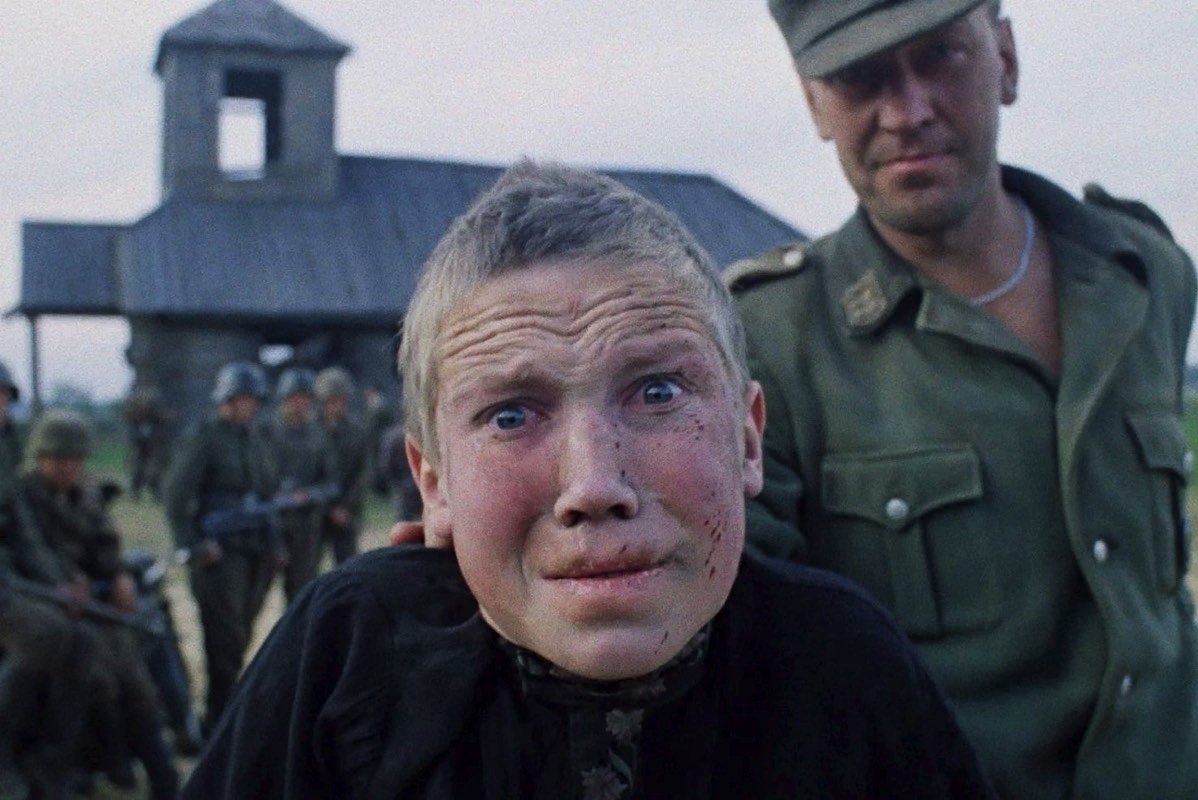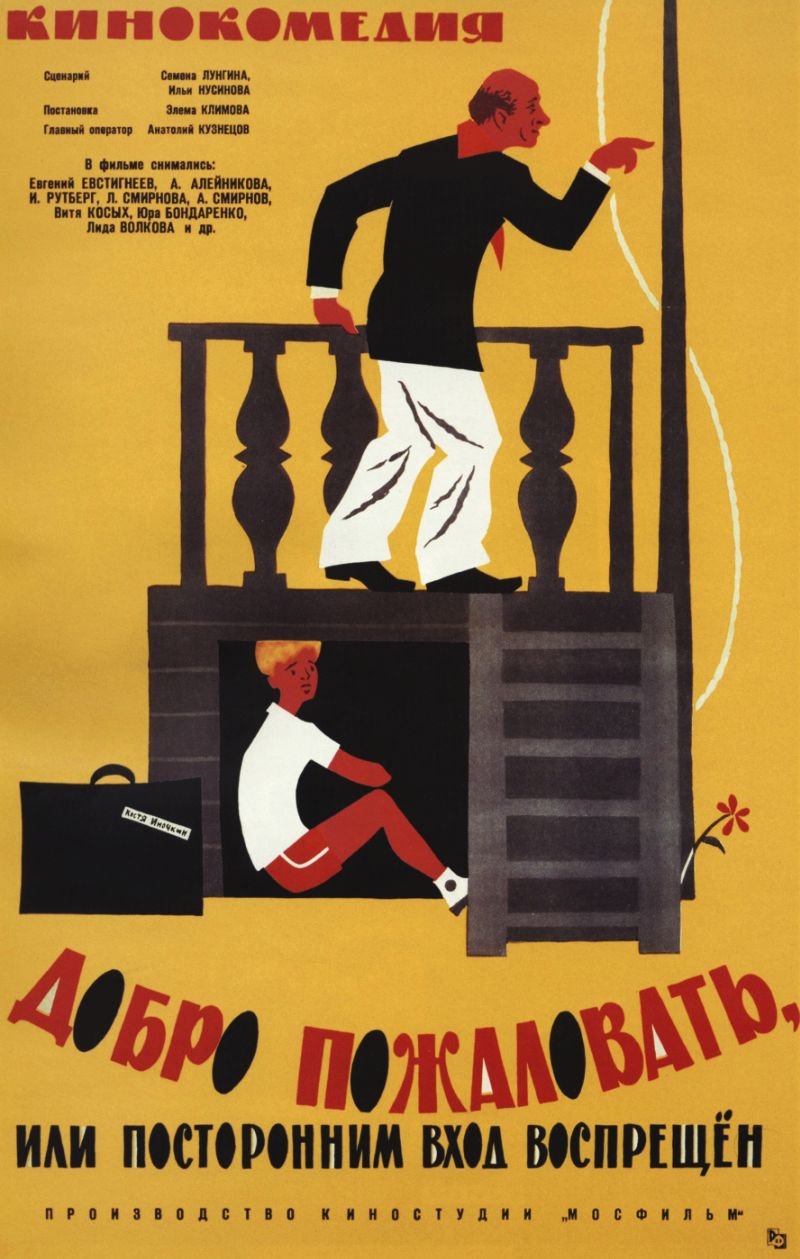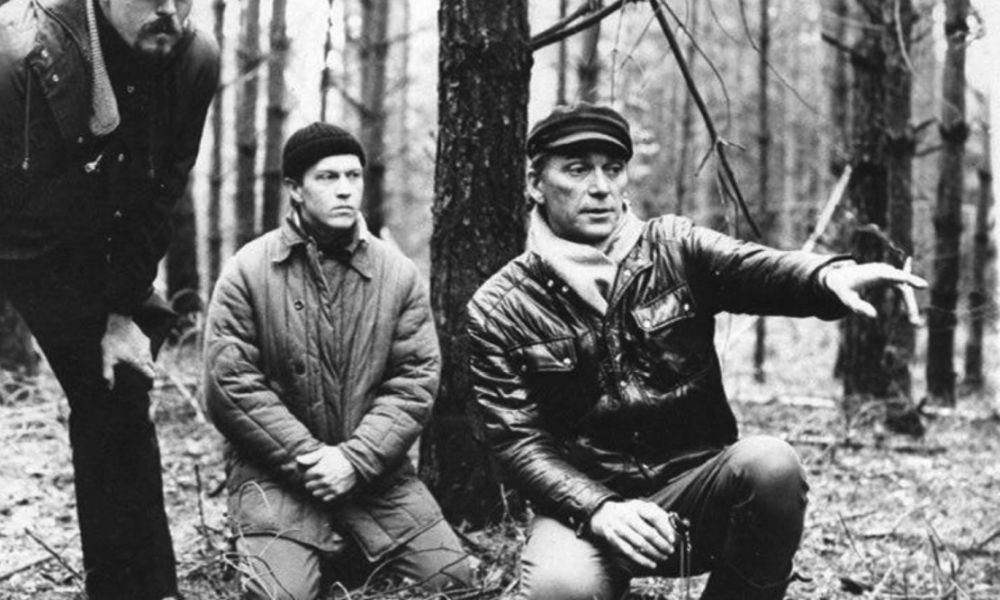"Klimov's early satires… had him pegged as “the Soviet Milos Forman,” but ethics and morality were always at the core of his films, even the comedies. In addition to the elegiac Farewell, he created a uniquely Russian expression of his country's history in Agonia, about Rasputin, as well as one of the most searing films ever made on the Russian experience of WWII, Come and See." - BAMPFA, 2005
Elem Klimov
Director
(1933-2003) Born July 9, Stalingrad, Nizhne-Volzhskiy kray, RSFSR, USSR (now Volgograd, Volgogradskaya oblast, Russia)
Top 250 Directors
(1933-2003) Born July 9, Stalingrad, Nizhne-Volzhskiy kray, RSFSR, USSR (now Volgograd, Volgogradskaya oblast, Russia)
Top 250 Directors
Key Production Country: USSR
Key Genres: Drama, History, Comedy, War Drama, Period Drama, Political Drama
Key Collaborators: Valeriya Belova (Editor), Alfred Schnittke (Composer), Aleksey Petrenko (Leading Actor), Alisa Freyndlikh (Leading Actress), Ilya Nusinov (Screenwriter), Semyon Lungin (Screenwriter), Aleksey Rodionov (Cinematographer), Yuri Katin-Yartsev (Leading Character Actor), Boris Blank (Production Designer), Viktor Petrov (Production Designer), Vladimir Kamsky (Production Designer)
Key Genres: Drama, History, Comedy, War Drama, Period Drama, Political Drama
Key Collaborators: Valeriya Belova (Editor), Alfred Schnittke (Composer), Aleksey Petrenko (Leading Actor), Alisa Freyndlikh (Leading Actress), Ilya Nusinov (Screenwriter), Semyon Lungin (Screenwriter), Aleksey Rodionov (Cinematographer), Yuri Katin-Yartsev (Leading Character Actor), Boris Blank (Production Designer), Viktor Petrov (Production Designer), Vladimir Kamsky (Production Designer)
"Elem Klimov was unfortunate enough to suffer the differing fates of working under Communism and under a free-market economy: he couldn't get his films released in the former and couldn't get them made in the latter. He directed five features in the pre-glasnost years, but they were all shelved for one reason or another by the State Committee for Cinematography… After completing his epic masterpiece, Come and See (1985), Klimov was the founding First Secretary of the Union of Soviet Filmmakers and set about releasing the three hundred films that had been shelved by the censors. The terrible irony of his new career is that Klimov did not benefit from the new freedom himself, and never made another film." - Lloyd Hughes (The Rough Guide to Film, 2007)
"Elem Klimov was a significant figure in Soviet cinema, known for his distinct filmmaking style and powerful socio-political commentary. His body of work, though not extensive, left a profound impact on the world of cinema… A significant influence on Klimov’s work was his partnership with fellow filmmaker and wife, Larisa Shepitko. Their creative and personal collaboration deeply influenced his filmmaking approach. After her tragic death, Klimov’s cinematic style turned towards more sombre and profound explorations of human suffering, as evidenced in Come and See, a film often viewed as a response to his grief and a damning critique of war." - Bronze Screen Dream

Come and See (1985)
"Soviet director noted for his documentary-style camerawork and often grotesque, unsympathetic characters. Klimov was the founding First Secretary of the Union of Soviet Filmmakers and earned world-wide acclaim with Come and See (1985), a stark, unrelenting account of a young boy's passage to manhood as a partisan in war-torn Byelorussia in the early 1940s. Klimov was married to the late director Larisa Shepitko (1938-1979), whose unrealised final project, Farewell (1981), he directed." - The Virgin International Encyclopedia of Film, 1992
"Soviet filmmaker Elem Klimov is best known in the West for his last movie, Come and See (1985), a harrowing child’s-eye view of World War II set in a scorched-earth Belarusian countryside plagued by bombing, mutilation, and massacre… Yet Klimov’s earlier work, which includes four other narrative features shot over the course of two decades, remains little seen. Those looking for more from the imposing, unnerving cinematic voice behind Come and See may be surprised to find that his first two features, Welcome, or No Trespassing (1964) and Adventures of a Dentist (1965), are comedies. But both films share with the later war drama an impulse to throw audiences off-balance. Abounding in visual gags and satirical jabs against Soviet conformity, these two early films are the playful but urgent attempts of a supremely talented young filmmaker to test the boundaries of what could be said and done in the USSR of the 1960s." - Will Noah (The Criterion Collection, 2018)
"In rejecting the tenets of socialist realism Klimov, like many of his contemporaries, has opted for a blurring of the lines between naturalism, fantasy and documentary. An overblown stress on style as opposed to meaning is the occasional result; equally, however, ambition and imagination are allowed full rein." - Geoff Andrew (The Film Handbook, 1989)
"Perhaps they have respect for me and my work, for my behavior and stature during difficult times. I always tried not to compromise and betray my principles -- which was not easy -- and people knew that. I never filmed what I did not want to do." - Elem Klimov, 1997
Selected Filmography
{{row.titlelong}}
Elem Klimov / Fan Club
Gillies MacKinnon, Kleber Mendonça Filho, Leslie Felperin, Ben Wheatley, Asif Kapadia, Baltasar Kormákur, Lizzie Francke, Ruben Östlund, Ari Folman, Jasper Sharp, Fernando León de Aranoa, Alex Cox.
Gillies MacKinnon, Kleber Mendonça Filho, Leslie Felperin, Ben Wheatley, Asif Kapadia, Baltasar Kormákur, Lizzie Francke, Ruben Östlund, Ari Folman, Jasper Sharp, Fernando León de Aranoa, Alex Cox.
"Fan Club"
These film critics/filmmakers have, on multiple occasions, selected this director’s work within film ballots/lists that they have submitted.
These film critics/filmmakers have, on multiple occasions, selected this director’s work within film ballots/lists that they have submitted.


